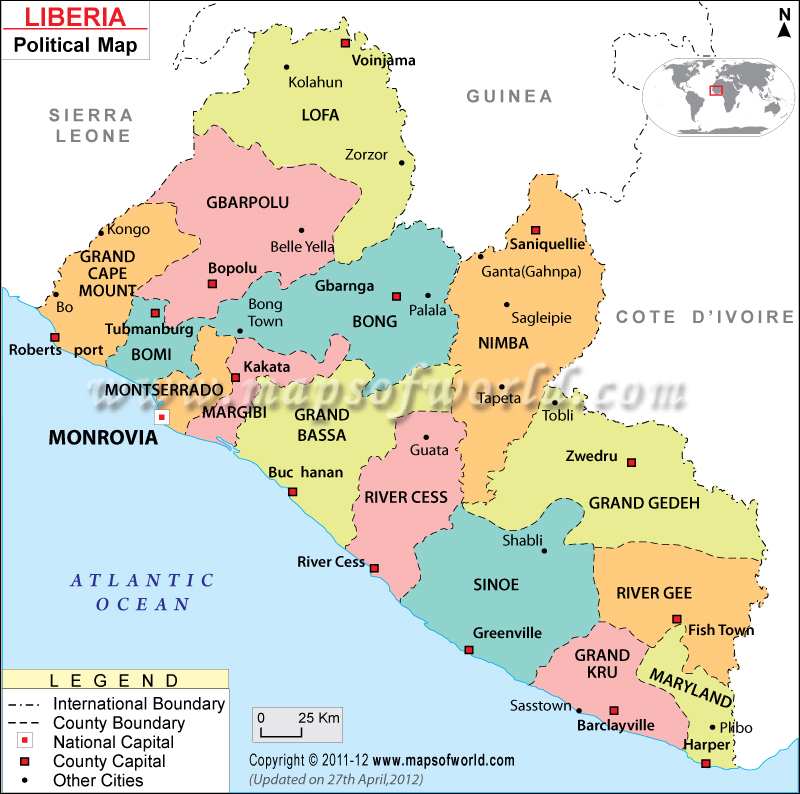After nearly three decades of colonization, the West African nation of Liberia came into existence by declaring its sovereignty on July 26, 1847. Designed as a way to give African slaves the opportunity to return to their home continent, it joins Ethiopia as one of only two modern African countries that can claim to originate from outside the bounds of European colonization. Modeling its government on the American example many of its residents had lived under, Liberia became the first democratic republic in Africa. The process had began almost a half-century before, when Americans on both sides of the slavery debate set about forming concrete ideas to curb the trade of human beings from Africa. Though discussions had begun on some level during the American Revolution, the issue grew in the social consciousness as more African-Americans were set free in the wake of victory for the United States – a thirteen-fold increase in the 25 years after the British surrendered at Yorktown. Having witnessed slave rebellions at the turn of the 19th century, deep prejudices left some whites fearing a national uprising incited by free blacks in a bid to overturn the fledgling American nation. Thus, the idea of establishing a new colony in Africa for those who had been released from bondage came to the fore. In 1816, the American Colonization Society (ACS) laid out a plan to help return freed slaves to the continent. Four years later, a ship carrying 88 black emigrants and three white ACS agents left New York determined to find a suitable location to plant a new settlement. Finding and purchasing land ended up being more of a struggle than the ACS had imagined. It was not until December 1821, nearly two years after the expedition had left America, that a 36-mile-long strip of land surrounding Cape Mesurado could be acquired. Under attack from the nearby Malinke tribes and buckling under the sweltering sun, the repatriated African-Americans fought hunger and disease to help the colony survive. In 1824, residents declared it Liberia and named its capital at nearby Monrovia. Over the next fifteen years, an additional five colonies were founded nearby – including one by the United States government. The boundaries of Cape Mesurado extended gradually, until the remaining four of the American-founded colonies officially coalesced into one in 1842. Calling themselves Americo-Liberians, the Commonwealth government matured as an organization at the right time: the ACS was no longer able to fund the project. Urging the Americo-Liberians to declare independence, the ACS relinquished its financial responsibility and formally cut ties with the new 3,000-strong nation on July 26, 1847. The now-sovereign country soon built a constitution modeled on the one created by the United States – both good and bad. While guaranteeing the rights for those who had participated in the founding of the colonies and their children, the Americo-Liberians ignored the rights of indigenous peoples within the boundaries of Liberia. Having forgotten the folly of the Three-Fifths Compromise for slaves in the American Constitution, the newly-independent government had set itself up for similar trouble. For well over 150 years, the native Africans acted to undermine the government which had left them on the outside looking in. It was not until 2003, at the end of the Second Liberian Civil War – both within the space of little more than a decade – that the nation found a tenuous peace.
July 26, 1847 CE – Liberia Declares its Independence
After nearly three decades of colonization, the West African nation of Liberia came into existence by declaring its sovereignty on July 26, 1847. Designed as a way to give African…
561
